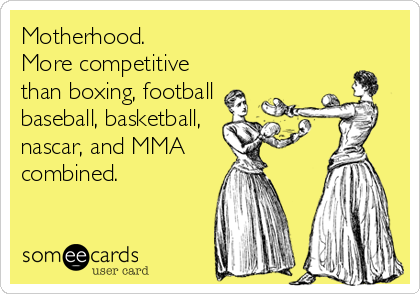Privilege is a word that’s bandied around a lot these days. White privilege. Male privilege. The privilege that comes from being rich. The list is endless. Each of us enjoys a different sort of privilege and some of it depends on one’s perspective as well. For example, some of my friends in India think I’m privileged because I live outside the country and hence enjoy a lifestyle that’s coveted by many. Some other friends wouldn’t dream of being in my position, because their lives in India are perfectly comfortable, and they enjoy the proximity to family and affordable full-time help that’s nonexistent outside of the country.
But what I want to talk about today is teaching kids about privilege. My son is five now and he has a very comfortable existence. The other day, we were having a conversation, and he said: “All the kids can watch what they want on TV Amma because everyone has a TV at home.” I started to explain to him how that’s not true and he just couldn’t fathom it and wouldn’t listen. In his version of the world, every kid has a TV at home. I can’t blame him either, because every home we have been to has one, if not more, televisions and a myriad of other gadgets. And that got me thinking on how to explain privilege to my son.
I didn’t grow up wealthy. My parents were middle-class Indian parents and like any middle-class family, we scrimped and saved for the stuff we wanted. We were expected to finish the food on our plates without complaint. We got new clothes for birthdays and special occasions. We had exactly two pairs of shoes- one for school and one for everything else. Chocolates and toys were an occasional treat. TV time was regulated and we were told we simply had to do well in school. Every single thing we had, we were expected to be thankful for, and we were. Both my parents had their ancestral homes in small villages and every holiday, the sibling and I would be packed off to our grandparents. There, we would see the kids in the neighborhood, their homes, and their struggles and that would reinforce what our parents told us, that we were indeed privileged. Our parents also always made sure that we were cognizant of the world around us, the struggles of everyone around us. They also made sure we shared with those less fortunate.
When my son was born, I wasn’t worried about his upbringing. I was going to raise him the way my parents raised us. What I didn’t factor in then was the fact that while I grew up in India, my son has already lived in four different countries in the short five years of his existence. He barely remembers India. He started his schooling in one of the most developed nations in the world. He went to a preschool were his friends’ parents were already shortlisting private schools and prep schools for their kids. We have two cars. His friends have lavish parties for birthdays. They get multiple presents for Christmas. And to an extent, as a parent, I have had to comply as well. He hasn’t had a lavish party to date. And I always try to limit the number and value of the presents he gets. And for every present he gets, he has to donate a toy he already owns. I try to strike a balance, and often when I feel he is taking things for granted, I sit him down and tell him how privileged he is to have all this.
I don’t know how much of it he understands, but so far, he complies with whatever it is I ask of him. He gives away his toys willingly. When he gets money as a gift, he donates half of it to charity. He tries not to waste food. He does chores around the house to earn money and donates part of that too. But he is only five, and I worry that as he grows older, and becomes more exposed to the place and the culture that surrounds him, he will forget his privilege and start taking things for granted. I know I will be prepared, but I don’t know if it will be enough.
But for now, I’m doing what my parents did- I’m trying to teach by example. And I’m exposing him to stories and issues from different parts of the world, showing him kids who don’t enjoy the same privileges he does. I teach him to be thankful for everything he has. To be thankful for the people who help him- be it the server at the restaurant or the cashier at the supermarket. To be thankful for the things he has every day. And I try to find stories, incidents, and books that we can discuss that talk about privilege. And I’m hoping that for now, this is enough. And that once he’s grown up and we have the more complex discussion about what it means to be privileged, he will understand and choose to use his privilege wisely.






